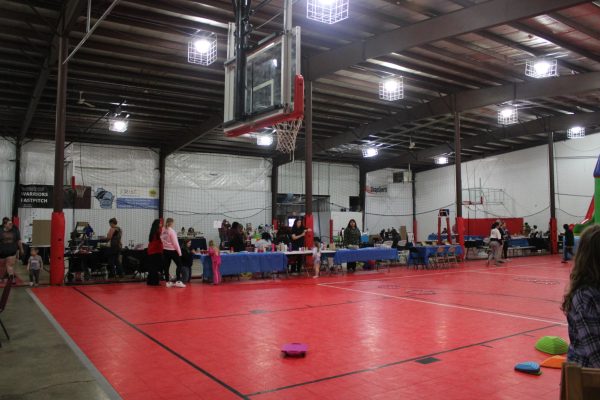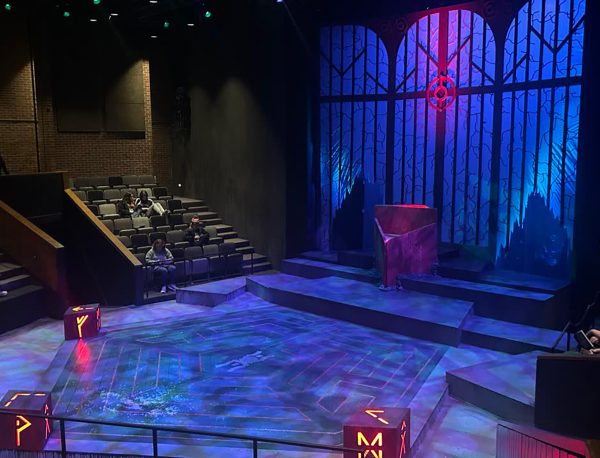‘Chicago’ in review
Ensemble cast shines in perfect fusion of Hollywood and Broadway
More stories from Gabriel Lagarde
Rob Marshall’s “Chicago” is a throwback in every sense of the word.
The 2002 film pays homage to the glamour and decadence of the 1920s and was the first musical since 1968’s “Oliver!” to win Best Picture at the Academy Awards. It’s a highly stylized vision of Jazz Age Chicago in all its showbiz glory, complete with murder, gleaming vaudeville shows, catchy tunes and dialogue drawn from the period.
What sets “Chicago” apart is its unique and wonderful fusion of Hollywood and Broadway. It isn’t the only film to attempt it. Joe Wright’s “Anna Karenina” (2012) and Mel Brooks’ “The Producers” (2005) both incorporated aspects of theater into their productions with varying success, but they should have looked back to “Chicago” as their guide. This one nails it on the head.
“Chicago” combines the subtlety of film with the accessible, organic performances of theater and, perhaps most impressive of all, these two aspects never seem to conflict. Whether you’re a film junkie or a theater buff, this film has the unique ability to lull its viewers into a place where it doesn’t feel like a film or a theater production, but something different altogether.
The story focuses on the fortunes and misfortunes of two women, Velma Kelly (Catherine Zeta-Jones), a vaudeville showgirl, and Roxie Hart (Renee Zellweger), an unhappy housewife with dreams of grandeur.
From the beginning, the viewer is swept into a swanky performance by Velma in a steamy Chicago night club. Velma, who typically performs with her sister Veronica, appears on stage alone, but goes on to wow by herself.
Among the revelers is Roxie, who is spellbound by Velma and fantasizes about her own dreams of show business. She returns home with her lover Fred Casely — who promises to get Roxie in touch with connections in the business — and the following love scene is contrasts with accompanying shots of Velma’s arrest for the murder of her sister and cheating husband.
Roxie’s story takes a dark turn as well, when the following morning Fred Casely confesses to her that he never had a contact in show business and that he had lied in order to have sex with her. In a fit of rage, Roxie shoots Fred Casely and is indicted for murder. She is taken to Cook County Jail and there meets Velma, who is serving time for her own crimes.
And, thus, the stage is set.
What follows is a rivalry between the two characters as each woman one-ups the other in their attempt to win the support of prison matron “Mama” Morton (Queen Latifah), the services of dynamo lawyer Billy Flynn (Richard Gere) and the affections of the masses in order to win their court cases and escape from Cook County Jail.
The story is punctuated by ballads extolling the virtues of toughness, the fleeting nature of fame and the cruelties of the city of Chicago. It all comes down to a rousing finish that, while very predictable, is just as flamboyant and glamorous as it should be.
In terms of acting, the performances by the film’s leading characters are above average, if not exemplary, although this is heavily outweighed by the theatrics and singing chops the characters utilize at every turn of the narrative. While I’m a vehement critic of Renee Zellweger and her acting skills, her turn as Roxie Hart fit the story perfectly and may be the most authentic performance of the story.
Many times when Hollywood tries to force A-list stars into singing parts (I’m looking at you, “Les Miserables”), there’s an uneven level of quality. Some actors can do it. Some just can’t. That’s not the case here, as the fearsome foursome of Zeta-Jones, Zellweger, Latifah and Gere deftly perform their numbers with nary a hitch.
While this writer prefers gritty, realistic films, I must say the pomp and ceremony of this blue-blooded Broadway classic got to me and I thoroughly enjoyed it for its historical value if nothing else. The film is a work of art and it deserved all six of the Oscars it garnered in 2002, according to IMDb. It’s an evening well spent.
“Chicago” will be screened at 2 p.m. and 7 p.m. Saturday and at 2 p.m. Sunday at Woodland Theater.










